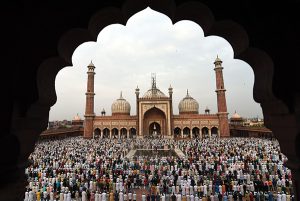I am writing this from Amritsar, India, in the state of Punjab. The Sikh Golden Temple here is one of India’s leading attractions, and recently I shared space with thousands of people over the course of four or five hours. In that time, I saw only two people who might qualify as White Westerners.
That simple observation — and my travels over the past year to Denmark, Switzerland, Ireland, Portugal, Mexico, England, Argentina and Colombia — have led me to a theory about the future of travel: The world is entering a new era in which exotic journeys are for more of a travel elite than a moneyed elite.
International travel is rebounding in comfortable “core†locations (for Americans, at least) such as Mexico, London or Dublin. But people are less keen on going farther afield. “Comfort travel†— by which I mean not just nice hotels but familiar surroundings — will be OK. “Challenge travel†— involving not only faraway places but also unaccustomed experiences — faces a more uncertain future.
It’s not just my own experience. A colleague who is currently visiting Rajasthan relates that his guide says he hasn’t worked with any foreign tourists for more than two years. The Chinese, the world’s most frequent travelers, reduced their international travel by 95% in 2021. Or consider the island of Bali, which is admittedly luxurious but still, to many Westerners, exotic. It was formerly a major tourist destination for North Americans, Europeans and Asians, with 6.3 million foreign visitors at its pre-pandemic peak. In all of 2021, it recorded just 45 foreign visitors — and estimates are that the island will need 10 years to recover to previous levels.
One possibility is that international tourism will soon return to its 2019 composition, as people overcome their inhibitions and worry less about Covid risk. I am doubtful.
For one thing, domestic US travel has already rebounded. Reservations for US national parks are difficult to get, and West Virginia and Maine are enjoying a newfound prosperity. Most people are flying and walking through airports without masks, a sign of some comfort with baseline Covid risk. And London, Dublin and Oaxaca had plenty of North American visitors. People seem to be able to satisfy their travel itch without going too far or taking too many chances.
Another problem is that significant parts of Asia have yet to return to normal. China is pursuing a “Zero Covid†policy, and the quarantines discourage foreign visitors. Japan still is not open to unescorted foreign visitors, with outdoor masks required. While those restrictions will eventually pass, people are getting out of the habit of thinking of Asia as a major tourist destination. I am even reluctant
to take connecting flights through Tokyo, like I used to, for fear that if my connection were cancelled, I couldn’t stay the night in Narita and enjoy some sushi.
When people are forced to adjust, as happened during peak pandemic times, they learn new things. What many Americans and Westerners have learned is that they enjoy “comfort travel†as much if not more than “challenge travel.†A lot of the new habits are going to stick. Especially with group travel, the preferences of comfort travelers will tend to win out in choosing a destination.
In this re-emerging world of exotic travel, there will be less incentive to make everything comfortable and easy. Travellers who seek out the truly exotic will
find new opportunities, and prices will stay low or perhaps fall further.
—Bloomberg
 The Gulf Time Newspaper One of the finest business newspapers in the UAE brought to you by our professional writers and editors.
The Gulf Time Newspaper One of the finest business newspapers in the UAE brought to you by our professional writers and editors.
